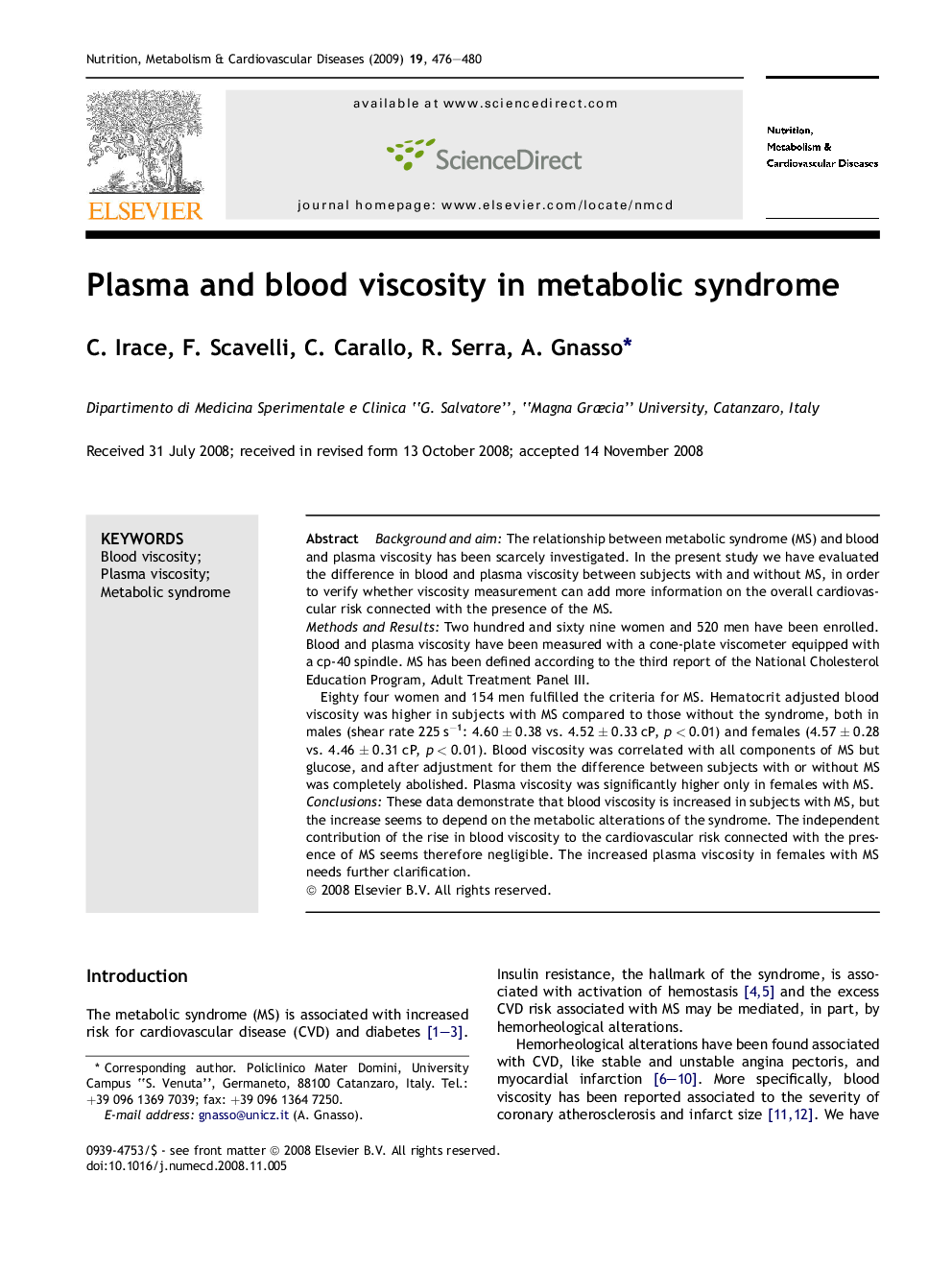| Article ID | Journal | Published Year | Pages | File Type |
|---|---|---|---|---|
| 3003000 | Nutrition, Metabolism and Cardiovascular Diseases | 2009 | 5 Pages |
Background and aimThe relationship between metabolic syndrome (MS) and blood and plasma viscosity has been scarcely investigated. In the present study we have evaluated the difference in blood and plasma viscosity between subjects with and without MS, in order to verify whether viscosity measurement can add more information on the overall cardiovascular risk connected with the presence of the MS.Methods and ResultsTwo hundred and sixty nine women and 520 men have been enrolled. Blood and plasma viscosity have been measured with a cone-plate viscometer equipped with a cp-40 spindle. MS has been defined according to the third report of the National Cholesterol Education Program, Adult Treatment Panel III.Eighty four women and 154 men fulfilled the criteria for MS. Hematocrit adjusted blood viscosity was higher in subjects with MS compared to those without the syndrome, both in males (shear rate 225 s−1: 4.60 ± 0.38 vs. 4.52 ± 0.33 cP, p < 0.01) and females (4.57 ± 0.28 vs. 4.46 ± 0.31 cP, p < 0.01). Blood viscosity was correlated with all components of MS but glucose, and after adjustment for them the difference between subjects with or without MS was completely abolished. Plasma viscosity was significantly higher only in females with MS.ConclusionsThese data demonstrate that blood viscosity is increased in subjects with MS, but the increase seems to depend on the metabolic alterations of the syndrome. The independent contribution of the rise in blood viscosity to the cardiovascular risk connected with the presence of MS seems therefore negligible. The increased plasma viscosity in females with MS needs further clarification.
